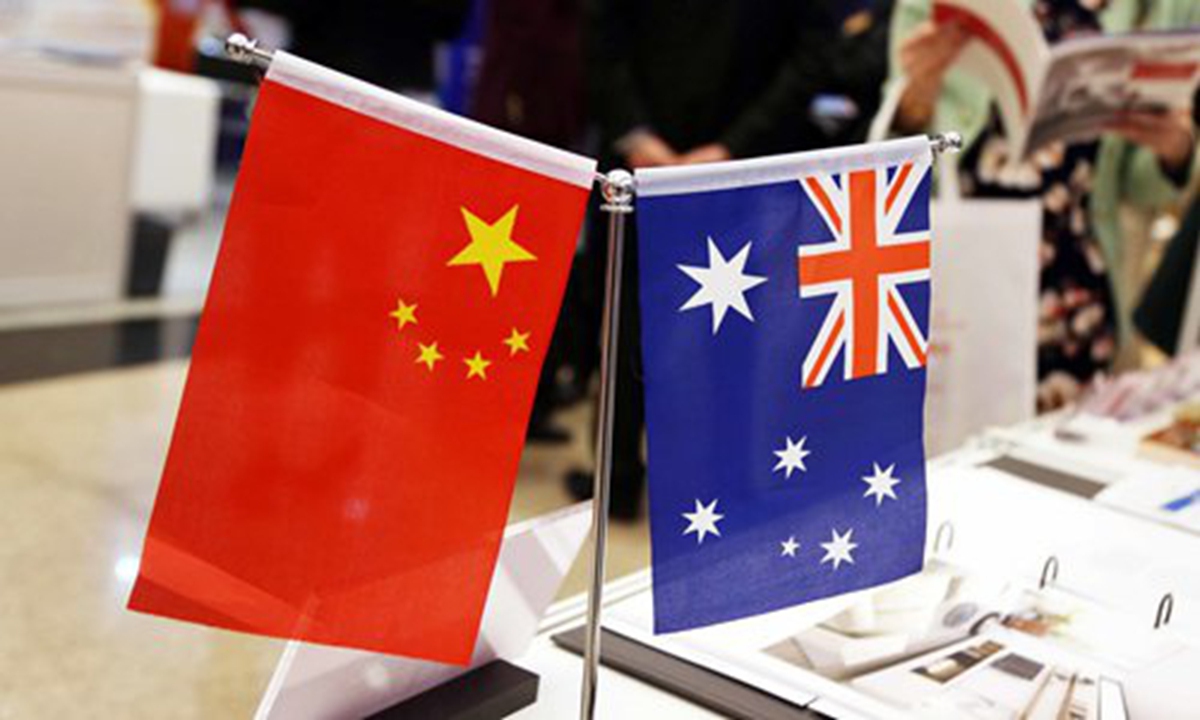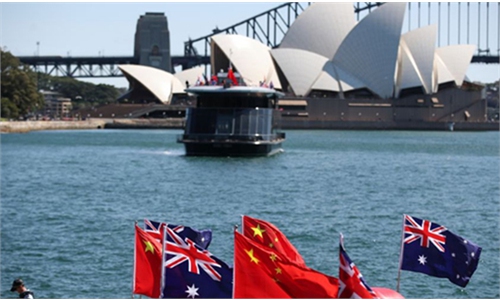
China Australia File photo
An online rumor about an impending Chinese ban on agricultural imports, particularly meat, from Australia and New Zealand due to concerns about foot and mouth disease posted by a Chinese social media account has sparked widespread concerns in Australia - a clear reflection of Australia's guilty conscience over its mistake in undermining China-Australia ties.The rumor, which first surfaced late Sunday, attracted lots of attention from Australian media outlets as Australian beef exporters are reportedly on high alert. Even Australian Prime Minister Anthony Albanese said on Tuesday that China had no basis for using foot and mouth disease to suspend beef imports.
Judging from the information from all sides, there is a clear overreaction to a mere market rumor from the Australian side. Chinese customs authorities haven't issued any formal notification. Shipments of meat from both Australia and New Zealand are currently being cleared as normal. Even the Chinese WeChat account that posted the rumor said on Monday that the customs clearance for Australian farm goods, including meat and dairy, was back to normal.
Indeed, the source of the rumor itself is an unofficial report and has never been verified by any Chinese official. To a certain extent, the irrational attention and hype over mere hearsay is reflective of the lingering market anxiety about China-Australia economic and trade relationship, which has been under the shadow of the political tension between the two countries for some time.
With China-Australia relations recently showing certain positive signs of thawing, bilateral economic and trade ties are at a sensitive stage. At this juncture, while market uncertainties and concerns are understandable, relevant business communities and market players are advised to wait for official information or seek confirmation from official sources instead of being easily swayed by unreliable rumors to avoid unnecessary market panic.
It should be noted that Albanese on Tuesday also took the opportunity to call on China to withdraw existing trade restrictions on Australian commodities, including wine, coal and barley. While it may reflect Australia's eagerness to see the so-called trade restrictions lifted by China, from another perspective it also indicates the lack of political willingness to address fundamental issues impacting China-Australia economic and trade relations. Since taking office, Albanese has been setting the preconditions for improved bilateral relations, saying the so-called Chinese economic sanctions must be lifted.
Yet, the difficulties facing the current China-Australia economic and trade relations are the result of political tensions. It is Australia's former Morrison administration that has joined the US-led containment campaign against China and taken the initiative to adopt policies showing its hostility toward China. Given Canberra's diplomatic strategy that framed China as a hostile target, how can bilateral economic relations remain smooth and unaffected?
This is also why the market has been so easily stirred up by a rumor about trade ban this time. The root cause lies in politics, not economics. In fact, it is the complementary nature of the two economies as well as their trade exchanges over the years that have still steered bilateral trade from being derailed despite the freeze in bilateral political relations.
But if Australia doesn't change its China policy starting from political and diplomatic levels, anxieties and concerns will continue to haunt the market.
We hope the Australian side can take concrete actions to improve bilateral relations, instead of trying to shirk responsibility and put pressure on China, which is not the right way for any improvement in bilateral trade ties.


